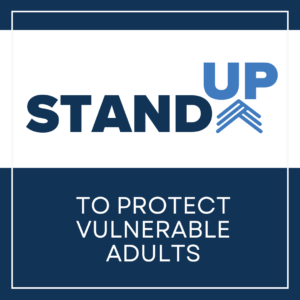We at the Evangelical Council for Abuse Prevention were heartbroken when we learned about the depth of the abuse problem in the Southern Baptist Convention. Because we believe all people are made in the image of God, no one should be subject to abuse or neglect; especially abuse committed by people who represent God as a part of a Christian ministry. The pain of abuse is aggravated when leaders who are supposedly there to help instead choose to ignore, malign, and even condemn those who seek to bring sinful behavior into the light.
The results of the Guidepost Solutions investigation into the problem of sexual abuse in the SBC have demonstrated a dire need to bring justice for victims, educate pastors and denominational leaders on abuse prevention and reporting, and take disciplinary action toward individuals and entities that refuse to submit to a biblical standard of moral character and institutional integrity. Ministry leaders must recognize that when one branch of the church body is corrupted, it affects how any ministry that represents the cause of Christ is viewed.
We are grateful for the Sexual Abuse Task Force’s recommendations, including the formation of an Abuse Reform Implementation Task Force, and requiring background checks and sexual abuse prevention training for all members of entity boards and standing committees. Furthermore, they have advised the IMB, NAMB, and SBC seminaries to require formal preparation for their denominational workers and students in regard to prevention, training, and survivor care. These are great steps in the right direction.
However, we believe that in order to fulfill their God-given stewardship, more is required from churches and ministry leaders.
Ministry leaders should promote abuse prevention and victim care resources. The SBC and other denominations should establish offices and hire personnel devoted to equipping churches in these areas, including a database of abusers.
Many church leaders are simply unaware of abuse-related issues, such as predatory practices, state-specific mandated reporter laws, how to minister to survivors, and many others. The SBC’s Caring Well Initiative was a great step toward helping churches care for victims, but what if we could prevent victimization in the first place? Abusers will continue to target the church, so ministries must commit to actively defending against it until the Lord returns. No regenerate ministry leaders want to see children abused, but many are just not sure where to start. Caring Well and other initiatives like it must be maintained and developed as ministries battle this malignant problem. The SBC and other leaders should make it a priority to provide resources for pastors and ministry leaders to help them keep children safe, including a database of abusers who have been involved in churches.
The 2019 Houston Chronicle “Abuse of Faith” investigation demonstrated that some abusive pastors and leaders jumped from church to church after being credibly accused or even convicted of wrongdoing. How many victims could have been saved if a church reported the abusive behavior to the authorities? Or even if they shared that information with other churches in their networks? State, Regional, and Local Conventions could play a role in helping local churches better vet out applicants for ministry positions, and equip them to know how to properly deal with abuse in their state.
Christian Colleges and Seminaries should establish research centers devoted to studying abuse, abuse prevention, response, and victim care.
Unfortunately, the problem of abuse in the church is not going away any time soon. At ECAP, we believe that abuse prevention is a Great Commission issue, because survivors of abuse often negatively associate Christian teaching with their abuser’s actions. Additionally, the world is always watching to see whether or not Christians really follow what Scripture says about care for the vulnerable and justice for victims. Specifically, the SBC should lead in this in creating an institute at one of their six seminaries. Academic research centers could help to equip ministry leaders to know how to prevent abuse and care for survivors in their ministries, shining a light on this massive issue.
Christian leaders should work together to create a Child Protection and Worker Training Certificate.
Christians should play a role in helping to establish a nationally available training program that certifies a person to safely work with children. Similar to CPR-certification, this program would teach Children’s workers the most important information they need to know about recognizing, reporting, and preventing abuse. The SBC and other denominations could even sponsor such a program that includes explicitly Christian convictions regarding the dignity of each individual made in the image of God, and the Bible’s teaching on stewardship. This certification would be issued by a knowledgeable authority in the arena of abuse prevention and child safety, and its reach would go beyond just one denomination.
Pastors and ministry leaders need to recognize the danger of abuse in church, and lead their ministries to champion victims and prevent abuse.
This report, as well as the reports from the Roman Catholic child sexual abuse scandal have shown us that abuse occurs in the church. Ministries must actively protect against abuse – as they do against false teaching. Sometimes, predators even target and groom churches who are lax in their screening practices of those who have access to children. Deepak Reju writes in On Guard: Preventing and Responding to Child Abuse at Church, “To deny that this could ever happen in a church puts our kids at risk. Denial doesn’t get anyone anywhere in a fallen world filled with sin and evil.”
Parents and church members should hold their leaders accountable and train children to recognize, resist, and report abusive behavior.
Whatever a church’s governance structure, the members have an essential role in demonstrating to their church’s leadership that abuse is intolerable. Churches can give parents resources to help them talk to their children about recognizing, resisting, and reporting abuse. They can provide materials that are both theologically grounded and practical regarding child safety. While we want kids to be able to enjoy their time at church, they must be equipped with the knowledge that no one has the right to touch them inappropriately or put them in uncomfortable situations. Parents can open up a conversation with their children about this difficult subject, with the hope that they or someone they know can be protected from abusive behavior.
The wider church should take heed.
Abusive behavior and covering up misdeeds was not just a result of SBC polity and culture. Abuse scandals at ministries of all types prove this. Christians should be humbled, recognizing that all of humanity is sinful by nature, and so we all have the capacity to do terrible things to others. Christians recognize that all human beings have a responsibility to their Creator to take care of the world and the people entrusted to them.
Abuse can happen in a church. Most abuse is preventable. And when there is abuse or neglect, offenders can often be brought to justice, and survivors can experience healing by the grace of God. What steps is your church or ministry taking to prevent abuse and ensure that abusers are properly identified and prevented from continuing to abuse?
While the subject of this investigation is the result of severe sin and dereliction of duty, and many people were deeply hurt by the betrayal they experienced, we are hopeful that it results in lasting change in churches and Christian ministries around the world. Whether abuse is in the headlines or not, these things are always true: the vulnerable must be protected, survivors deserve justice, and the gospel of Jesus Christ is the only source of ultimate healing and restoration.
For more resources on Child Protection, visit our website https://ecap.net
Check out our Child Safety Standards at https://ecap.net/standards/






Thank you for your well-considered column. I agree with your recommendations, and would recommend two additional elements that are implied in your column but not expressly mentioned. First, I believe anyone who is offered a volunteer or paid position in a local church’s ministry (after successfully completing a background check) should be told that if they are accused of inappropriate conduct with a minor that the accusation will be addressed professionally but aggressively in keeping with all local laws. In addition they should understand that, should the accusation be found true, appropriate personnel and legal action will be pursued. This message must be delivered clearly.
Secondly, church employees, especially senior pastors, must be held accountable for their responses to such accusations. They must understand that, should they obstruct the pursuit of the truth in any way, they face serious consequences, including termination from their roles. Even if a senior pastor is not involved in the “coverup” of the activity, I would argue they are responsible for a culture that made someone believe that ignoring the issue was an appropriate response.
Thank you. I join you in praying that God will guide our church leaders, purify their hearts and protect the lives of our children.